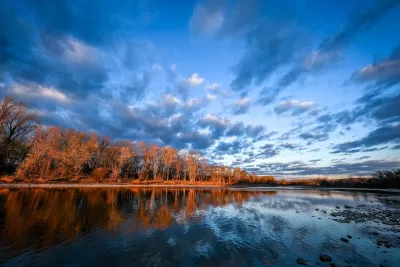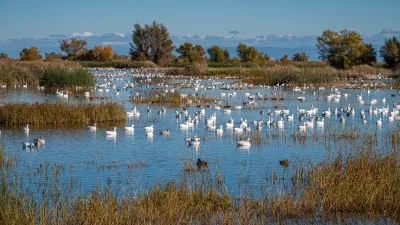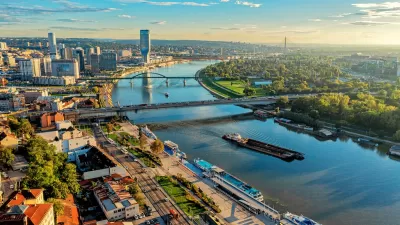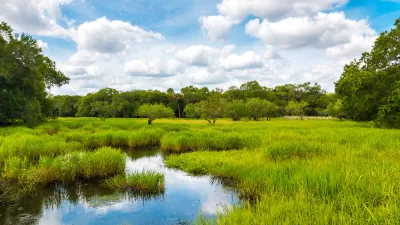A plan to restore perennial plants to agricultural land could help reduce runoff and improve water quality across the Great Lakes region.

A group of nonprofits and land trusts in the Great Lakes region is collaborating on a new effort to improve water quality by returning certain croplands to perennial vegetation to reduce runoff and limit erosion.
According to an article in Midland Daily News, “Using state-of-the-art watershed modeling paired with local insights, the Greater Lakes Promise team selects high priority lands for conservation. These lands are then permanently protected with funding generated by individuals and businesses who live and work in the region.”
The restored land will enhance carbon storage and reduce pollution. “The team will develop a modeling framework to target areas with the highest potential for phosphorous loading, along with the lowest predicted land value, in order to maximize the overall return on investment and make sure funds are put to good use.”
If successful, the project offers a promising approach to the permanent conservation of ecologically important areas.
FULL STORY: New regional partnership to improve Great Lakes water quality

Planetizen Federal Action Tracker
A weekly monitor of how Trump’s orders and actions are impacting planners and planning in America.

Chicago’s Ghost Rails
Just beneath the surface of the modern city lie the remnants of its expansive early 20th-century streetcar system.

San Antonio and Austin are Fusing Into one Massive Megaregion
The region spanning the two central Texas cities is growing fast, posing challenges for local infrastructure and water supplies.

Since Zion's Shuttles Went Electric “The Smog is Gone”
Visitors to Zion National Park can enjoy the canyon via the nation’s first fully electric park shuttle system.

Trump Distributing DOT Safety Funds at 1/10 Rate of Biden
Funds for Safe Streets and other transportation safety and equity programs are being held up by administrative reviews and conflicts with the Trump administration’s priorities.

German Cities Subsidize Taxis for Women Amid Wave of Violence
Free or low-cost taxi rides can help women navigate cities more safely, but critics say the programs don't address the root causes of violence against women.
Urban Design for Planners 1: Software Tools
This six-course series explores essential urban design concepts using open source software and equips planners with the tools they need to participate fully in the urban design process.
Planning for Universal Design
Learn the tools for implementing Universal Design in planning regulations.
planning NEXT
Appalachian Highlands Housing Partners
Mpact (founded as Rail~Volution)
City of Camden Redevelopment Agency
City of Astoria
City of Portland
City of Laramie





























